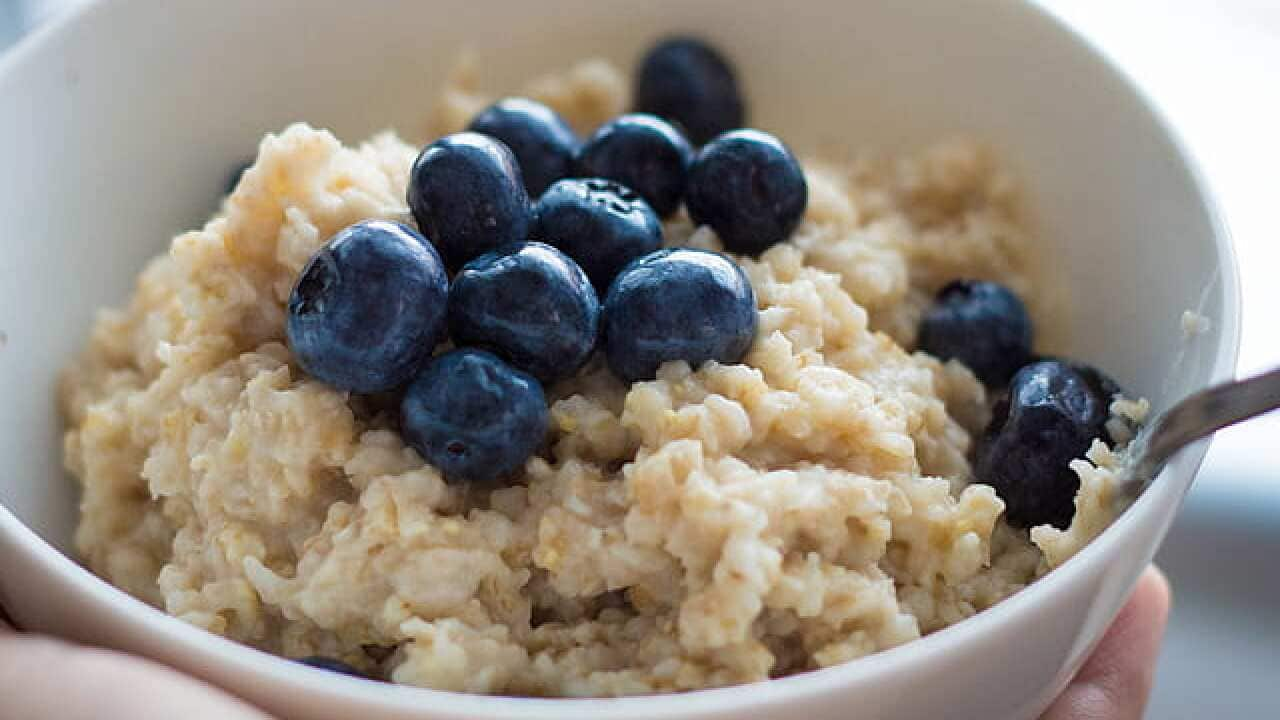Forget low-carb diets that demonise all grains and carbohydrates as being unhelpful to your health.
A new Australian study suggests that having carbohydrates regularly in the form of wholegrain oats can actually reduce your total cholesterol and bad cholesterol naturally.
The review, published in the earlier this year, examined the notion of swapping from refined grains to wholegrains to improve heart health instead of abandoning grains completely.
Researchers examined 25 randomised control trials involving almost 2,300 participants – some who were healthy and others who had cardiovascular risk factors – from Europe, Asia, North America, the United Kingdom and the Middle East.
Most participants, aged between 27 to 67-years-old, replaced refined grains with wholegrains in their diet for 12 to 16 weeks.
...the study found that swapping to wholegrain oats improved total cholesterol and bad cholesterol.
The results showed that switching from refined grains to wholegrains lowered total cholesterol and bad cholesterol (low-density lipoprotein cholesterol or LDL).
It also reduced inflammation in the body (measured by the C-reactive protein) and improved longer-term blood glucose levels (indicated by improvements in the marker hemoglobin A1c).
“There are a lot of dieting gurus out there telling you to take grains out of your diet when that is actually one of the worst things you can do for health,” general manager of , Dr Sara Grafenauer, tells SBS.
“In fact, this study shows that you need some grains in your diet – wholegrains – as they can help to lower cholesterol. If you can switch from refined grains to wholegrains, you will make better choices about foods and have less inflammatory issues.”

The study showed that switching from refined grains to wholegrains - like brown rice - lowered total cholesterol and bad cholesterol. Source: E+/Getty Images
The benefits of a swap
Specifically, the study found that swapping to wholegrain oats improved total cholesterol and bad cholesterol.
Replacing white rice with wholegrain rice improved triglycerides.
“Triglycerides are another fat or lipid that is different to cholesterol that's found in your blood,” Dr Grafenauer explains. “They are affected when someone eats a lot of refined sugars and alcohol. So for triglycerides level to be low once someone swaps to wholegrain rice is a really good sign.”
High triglyceride levels also signals insulin resistance, which can be a precursor for diabetes. It indicates that the body is not turning food into energy properly. A common cause of high triglycerides is excess carbohydrates in the diet.
“Increasingly, we are seeing more diabetes occur in white rice eating cultures across the world and in Australia,” Grafenauer tells SBS. “But it often [goes hand-in-hand] by people having high triglyceride levels, which is a sign that they are not managing the refined carbohydrates in their diet.
“So by swapping from white to brown rice, you're going to reap a really good effect on your heart health and blood sugar levels.”
The commissioned the research to investigate how certain grains ranked against each other. Grafenauer says the study was important to conduct, because just like vegetables and fruits, there are so many different types of grains with varied health benefits or consequences.
The study's results are obviously good news for people who love their rice and bread, and don’t want to give up all carbohydrates completely.
“We've got to get away from cutting foods and return back to enjoying food. So we are being realistic with our recommendation to swap white for wholegrain, expecting that occasionally people will want to eat white rice with Asian food or enjoy a traditional pasta dish.
“The optimum amount of wholegrain [in Australia] has been determined as 48grams per day or three serves – so people can continue to enjoy traditional foods.”
According to the , published in in 2019, most people across the globe are not eating enough wholegrains day-to-day.
On average, it found that people only have around 30 grams of wholegrains a day. Low intake of wholegrains was the leading dietary risk factor for death and disease in the USA, India, Brazil, Pakistan, Nigeria, Russia, Egypt, Germany, Iran, and Turkey.





